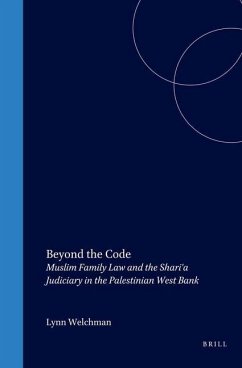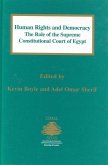Legal issues of personal status including those implicating women's rights continue to be a focal area of shari'a judicial practice in the Muslim world. Changing ideas of marriage, relations between the spouses, divorce, and the rights of divorcees and widows challenge the courts around the Arab world. In this context, the areas that came under the Palestinian Authority in 1994 command particular attention: the particular political and socio-economic circumstances that surround Palestine's progress toward full statehood have created a remarkable crucible for the synthesis of a new family law in the Arab world. This rigorous study of the interpretation and application of personal status law in the Palestinian West Bank (and to a lesser extent in the Gaza Strip) is the most extensive yet attempted. It presents a systematic analysis of the application of Islamic family law in nearly 10,000 marriage contracts, 1000 deeds of talaq (unilateral divorce) or khul' (divorce with renunciation), and 2000 judicial rulings over a time span that includes Jordanian rule and Israeli military occupation, updating this with material from the beginning of the jurisdiction of the Palestinian Authority. Taken into account are the sources of law used in the shari'a courts of the West Bank: the successive codes of family law (the Jordanian Law of Personal Status 1976 and its predecessor the Jordanian Law of Family Rights 1951), and traditional Hanafi rules and texts, along with commentaries by prominent contemporary shari'a scholars and Appeal Court decisions as well as the amendments and modifications being sought by civil society actors (notably women's groups) in the West Bank and Gaza Strip, as well asin Jordan.
Hinweis: Dieser Artikel kann nur an eine deutsche Lieferadresse ausgeliefert werden.
Hinweis: Dieser Artikel kann nur an eine deutsche Lieferadresse ausgeliefert werden.








